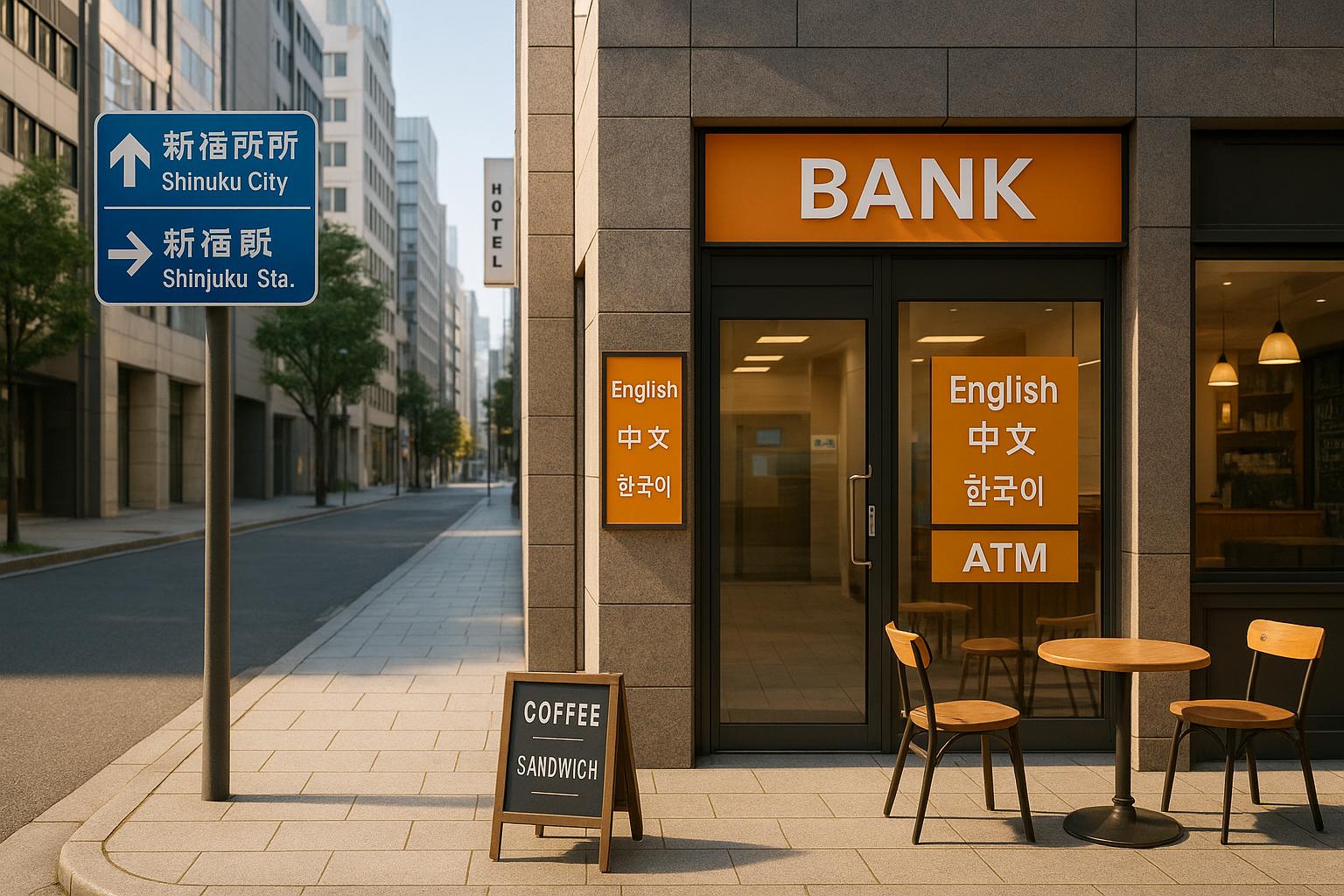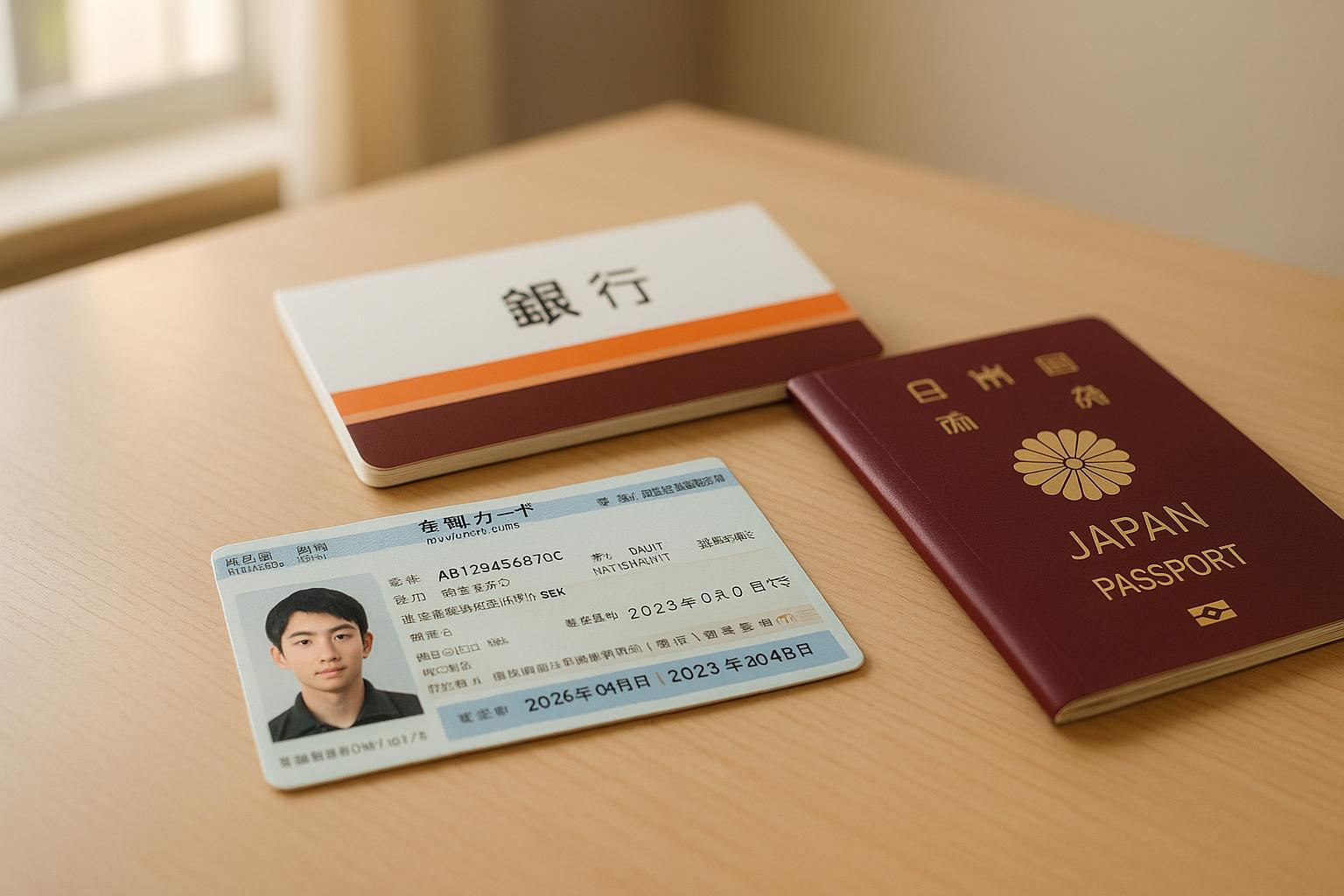Moving to Tokyo? Here's what you need to know about health insurance:
- Health insurance is mandatory in Japan if you're staying longer than 3 months. Without it, medical costs can be extremely high (e.g., ¥20,000–¥50,000 per visit).
- There are 3 main options for expats:
- National Health Insurance (NHI): For self-employed, part-timers, students, or unemployed. Covers 70% of costs. Premiums depend on income (e.g., ¥10,000–¥15,000/month for ¥2M annual income).
- Social/Employee Health Insurance (SHI): Offered through employers. Premiums are split 50/50 between you and your employer. Includes family coverage.
- Private/International Health Insurance: Costlier (¥20,000–¥50,000/month) but offers global coverage, multilingual support, and fills gaps in public insurance.
Quick Comparison:
| Feature | National Health Insurance (NHI) | Social/Employee Health Insurance (SHI) | Private/International Insurance |
|---|---|---|---|
| Eligibility | Self-employed, students, etc. | Full-time employees | Open to all |
| Cost | Based on income (e.g., ¥10,000–¥15,000/month) | Shared with employer (10% of salary) | ¥20,000–¥50,000/month |
| Coverage | 70% of medical costs | 70% + family coverage | Comprehensive, global |
| Language Support | Limited | Limited | Extensive |
For most expats, combining mandatory public insurance (NHI or SHI) with private insurance provides the best balance of affordability and coverage.
JAPAN INSURANCE FOR EMPLOYEES OR SHAKAI HOKEN EXPLAINED | SHAKAI HOKEN #SHAKAI HOKEN, HOKEN SA JAPAN
1. National Health Insurance (NHI)
National Health Insurance (NHI) is Japan's primary public healthcare system for residents who don’t qualify for employer-sponsored insurance. If you're self-employed, unemployed, working part-time (less than 30 hours a week), or a student in Tokyo, this is likely the coverage you'll rely on.
Enrollment is straightforward but mandatory, and you must sign up within 14 days of becoming eligible. To enroll, visit your local ward office in Tokyo. Foreign residents are also required to join NHI unless they’re covered by other public health insurance - even if they have student or travel insurance.
What NHI Covers
NHI covers a broad range of essential healthcare services, ensuring access to hospital care, outpatient visits, mental health services, prescription medications, home healthcare, and dental care. The system pays for 70% of your medical expenses, leaving you to cover the remaining 30%. For instance, a hospital visit might cost an insured patient between ¥10,000 and ¥15,000, but without insurance, those costs could rise significantly.
However, there are exclusions. NHI doesn’t cover orthodontics, medical treatment from fights or intoxication, vaccines, routine check-ups, cosmetic procedures, obstetrics, or contraception.
Premium Calculations and Costs
NHI premiums are calculated based on your previous year's income, meaning your costs will vary depending on how much you earned. For example, if your annual income is ¥2,000,000, your monthly premiums might fall between ¥10,000 and ¥15,000. Higher earners, however, could face premiums reaching ¥900,000 annually in Tokyo, while nearby areas like Chiba might see lower amounts, around ¥400,000 per year.
Each year, the municipal government sends out premium notifications between June and July. Payments can be made monthly at banks or post offices, or you can set up automatic withdrawals for convenience.
Financial Support Options
To help manage healthcare costs, Japan offers various financial assistance programs. Low-income individuals, children, and the elderly may qualify for subsidies to reduce out-of-pocket expenses. If you have chronic illnesses, there are additional medical subsidies available to help cover ongoing treatment costs.
Organizations like Japan Healthcare Info (JHI) can assist with subsidy applications. To ensure your premiums are calculated correctly, it’s essential to file your tax returns. If you haven’t done so, contact your ward’s NHI section to address any discrepancies.
"Japan's constitution expressly declares that citizens have a right to health and that it is the state's responsibility to ensure this right can be realised."
This constitutional guarantee ensures that while NHI is mandatory, it provides vital protection against Japan’s otherwise high medical expenses. Up next, we’ll explore Social/Employee Health Insurance (SHI) and how it compares in terms of eligibility and benefits.
2. Social/Employee Health Insurance (SHI)
Social/Employee Health Insurance (SHI) is Japan's employer-based health insurance system, covering 59% of the population and serving as a primary option for many expat employees working in the country.
Eligibility and Enrollment
If you’re a full-time employee at a medium or large company in Japan, you’re automatically enrolled in SHI. Part-time employees who work more than three-quarters of the hours of a full-time position are also eligible. The good news? Your employer takes care of all the paperwork and registration, so you don’t have to worry about the administrative hassle.
For foreign employees, the process is straightforward. You can register for your social security card and residence card at the same time to access SHI benefits. However, there are exceptions. Expats who are paid outside Japan or whose employers offer equivalent private health insurance are not required to join SHI. It’s always a good idea to check with your HR department to ensure you meet the criteria and have the necessary documentation.
Cost Structure and Employer Contributions
One of the standout features of SHI is its cost-sharing model. Premiums are split evenly between you and your employer, with the company covering 50% and the rest deducted from your monthly paycheck. This system is particularly favorable for higher earners.
The total contribution rate is about 10% of your monthly salary and bonuses, shared equally between you and your employer. For instance, in Tokyo, the maximum monthly salary contribution in 2018 was ¥137,000, while the annual cap for bonus contributions stood at ¥5,730,000. These rates can vary depending on the insurance fund and prefecture, but the caps ensure that costs remain reasonable.
Medical Coverage and Family Benefits
SHI offers extensive medical coverage. What’s more, it doesn’t just stop at you - it also covers your family members. Dependents are included without needing separate enrollments or additional premiums. The coverage spans a wide range of essential services, including hospital care, outpatient visits, mental health services, prescription medications, and even dental care.
Language Support Challenges
Despite its comprehensive coverage, SHI has its challenges - language barriers being a significant one for non-Japanese speakers. Many healthcare providers have limited English proficiency, which can make medical consultations tricky. To address this, you might consider pairing your SHI coverage with an international health insurance policy that includes language support. Additionally, organizations like Japan Healthcare Info and the AMDA International Medical Information Center can help by providing healthcare information in English and other languages.
These features make SHI a practical and reliable option for employed expats navigating the Japanese healthcare system.
sbb-itb-cbc0cbb
3. Private and International Expat Health Insurance
Private and international health insurance plans are designed to complement Japan's public healthcare system, offering global coverage and multilingual support tailored to the needs of expatriates in Tokyo. These plans are especially appealing to those who require more extensive coverage and assistance navigating healthcare challenges as foreign residents.
Why Expats Choose Private Insurance
According to a survey, around 20% of expats choose private health insurance for access to advanced treatments, premium accommodations, and the flexibility of customizable plans.
Japan's public system covers 70% of medical expenses but leaves gaps in areas like preventive care, certain dental treatments, and premium hospital accommodations. Private insurance fills these gaps, often including services like inpatient and outpatient care, dental and vision coverage, cancer treatments, mental health support, and even medical evacuation.
Cost Structure and Pricing Factors
Premiums for private health insurance in Japan typically range between ¥20,000 and ¥50,000 per month, with most falling between ¥35,000 and ¥40,000 (approximately $330–$370 USD). For instance, a 45-year-old man might pay anywhere from $200 to $500 monthly for a Cigna Global plan. On a global scale, Japan is among the top 20 countries with the highest health insurance costs, averaging $5,079 annually.
Several factors influence premium costs, including your age, medical history, coverage level, and the specific features of your plan. While international plans tend to be more expensive than domestic private insurance, their worldwide portability makes them a worthwhile choice for expats who may relocate.
Coverage Benefits and Global Portability
International health insurance stands out for its broad and portable coverage, which extends beyond Japan’s healthcare system. These plans often include 24/7 emergency support, direct billing with healthcare providers, medical evacuation services, and comprehensive maternity, drug, and preventive care.
For non-Japanese speakers, the ability to access English-speaking doctors and hospitals is a major advantage. Facilities like St. Luke's International Hospital in Tokyo cater to international patients with multilingual support, while organizations such as Emergency Assistance Japan (EAJ) provide medical coordination and interpretation services in Japanese, English, Chinese, and other languages.
Application Criteria and Enrollment
Enrolling in a private or international health insurance plan usually involves completing a short medical questionnaire and, in some cases, undergoing a health examination. Many providers offer the convenience of direct billing with major hospitals, saving you from upfront payments.
The flexibility of private insurance allows you to tailor your plan to suit your specific needs, whether that means enhanced dental coverage, premium hospital accommodations, or global coverage for frequent travelers. For expats in Tokyo, these plans serve as a valuable supplement to Japan's public health insurance, offering the comprehensive protection and convenience many seek while living abroad. Up next, we’ll explore the pros and cons of these insurance options.
Pros and Cons
Choosing the right health insurance in Japan means weighing the benefits and drawbacks of each option. Your decision will depend on your personal circumstances, priorities, and lifestyle.
| Feature | National Health Insurance (NHI) | Social/Employee Health Insurance (SHI) | Private/International Health Insurance |
|---|---|---|---|
| Advantages | • Mandatory coverage ensures access to Japan's high-quality healthcare system • Government covers 70% of medical costs • Affordable premiums for basic healthcare needs • Access to Japan's universal healthcare network |
• More affordable than NHI due to employer cost-sharing • Covers 70% of medical costs like NHI • Coverage extends to family members • Automatic enrollment through employment |
• Comprehensive and customizable benefits • Global network with worldwide portability • Language support and multilingual services • Covers the 30% co-pay from public insurance • 24/7 emergency assistance and direct billing |
| Disadvantages | • Doesn't cover family members automatically • Limited access to second opinions • Mental health care may carry stigma • Requires a 30% out-of-pocket payment • Premiums based on the previous year's income |
• Only available to full-time employees • Limited to basic medical services • Leaves 30% of costs uncovered • Tied to employment status • Less flexibility in provider choice |
• Expensive, with premiums around ¥35,000–¥40,000 monthly • May not be directly accepted at all hospitals |
Let’s dig deeper into these points.
Public insurance plans, both NHI and SHI, cover 70% of medical costs, but you’ll still need to pay the remaining 30% out of pocket. This can become a significant financial burden if you require major treatments. SHI is often a better option for families, as the employer shares the premium costs and coverage extends to dependents. On the other hand, private insurance eliminates the 30% co-pay entirely but comes with higher premiums - Japan is among the top 20 countries with the highest health insurance costs, with an average annual premium of USD $5,079.
Language barriers can also be a concern. Public insurance typically doesn’t include translation services, which can make medical consultations challenging for non-Japanese speakers. Private insurance, however, often provides access to English-speaking providers and multilingual support, easing the process for expats.
Customization is another key difference. Public insurance offers standardized coverage, which might not meet specific needs like advanced dental care or premium hospital accommodations. Private insurance, while more expensive, allows you to tailor your plan to include these extras, along with global coverage for frequent travelers. This flexibility is particularly appealing to expats who may have unique healthcare requirements or plans to relocate in the future.
Because of these trade-offs, many expats choose to maintain their mandatory public insurance while supplementing it with private policies. This combination helps cover gaps and provides enhanced services tailored to their specific lifestyle and healthcare needs.
Conclusion
When choosing insurance in Japan, it's essential to base your decision on your personal situation and requirements. For working professionals employed by Japanese companies, Social/Employee Health Insurance (SHI) is often the most practical option. It’s automatically provided through your job, with costs shared between you and your employer. For instance, a 30-year-old single resident of Tokyo earning ¥310,000 per month would pay an SHI premium of about ¥15,000, while the employer covers the other half.
For other groups, the choice of insurance should be tailored to their specific needs. Students, who typically don’t qualify for employer-sponsored insurance, must enroll in National Health Insurance (NHI). Many also look into student-specific plans for more tailored and extensive coverage.
Families often find SHI more economical because it includes automatic dependent coverage, making it a cost-effective option compared to NHI.
Expats often adopt a hybrid approach for comprehensive protection. While maintaining mandatory public insurance, many supplement it with private plans. For example, a private plan like Cigna Global for a 45-year-old single individual might cost between $200 and $500 per month.
Another key factor to consider is language support. Public insurance provides excellent medical care but may lack translation services. Private insurance plans frequently include multilingual support, helping you communicate effectively with English-speaking medical professionals.
Japan’s public healthcare system is highly reliable, covering 70% of medical expenses. This strong foundation allows you to build an insurance strategy that addresses your unique needs - whether you require family coverage, language assistance, or global portability for frequent travel.
For the best protection in Tokyo, start with the mandatory public insurance and consider adding private coverage to fill any gaps. This combined approach ensures you’re well-covered in any situation.
FAQs
What’s the difference between National Health Insurance (NHI) and Employee Health Insurance (SHI) for expats in Tokyo?
The main differences between National Health Insurance (NHI) and Employee Health Insurance (SHI) for expats living in Tokyo come down to eligibility, costs, and the scope of coverage.
NHI is tailored for individuals who are self-employed, students, or those not working full-time. In contrast, SHI is intended for full-time employees, including expats, and is typically offered through their employer. With SHI, the cost of premiums is split between the employer and the employee, making it a more affordable option for those who qualify. On the other hand, NHI premiums are calculated based on your income and household size, and each family member must enroll separately.
Both insurance systems require patients to cover 30% of their medical expenses. However, SHI often provides additional perks, such as including dependents under the same plan. Deciding which option works best for you will depend on your job situation and whether you have family members who also need coverage.
Why should expats in Tokyo consider adding private or international health insurance to their public coverage?
Expats living in Tokyo often opt to complement Japan's public health insurance system with private or international plans. These additional policies can cover services that public insurance might not include, such as dental treatments, alternative therapies, or private hospital rooms. Private insurance also tends to provide quicker access to medical care, reducing the wait times often associated with public healthcare.
One major benefit is the language support many private insurers offer. With English-speaking assistance, navigating the healthcare system and communicating with doctors becomes much less stressful for non-Japanese speakers. Private plans also let you choose your preferred doctors and hospitals, giving you more control over your medical care. For newcomers to Japan, private insurance can be especially helpful, as it ensures immediate coverage while waiting for enrollment in the public system.
What can expats do to overcome language barriers when using Japan's public healthcare system?
Expats in Japan can navigate language barriers in public healthcare by utilizing multilingual medical questionnaires (MMQs). These forms, available in 18 languages, help patients clearly communicate symptoms and medical concerns to healthcare providers. Many hospitals also provide interpretation services or have staff who can assist in English, so it’s a good idea to check in advance for facilities with these options.
For additional support, expats can use translation apps for basic conversations or bring a trusted bilingual friend to medical appointments. There are also organizations that offer free or affordable medical interpretation services, which can be incredibly helpful. Being prepared and knowing about these resources can make accessing healthcare in Japan much easier.


